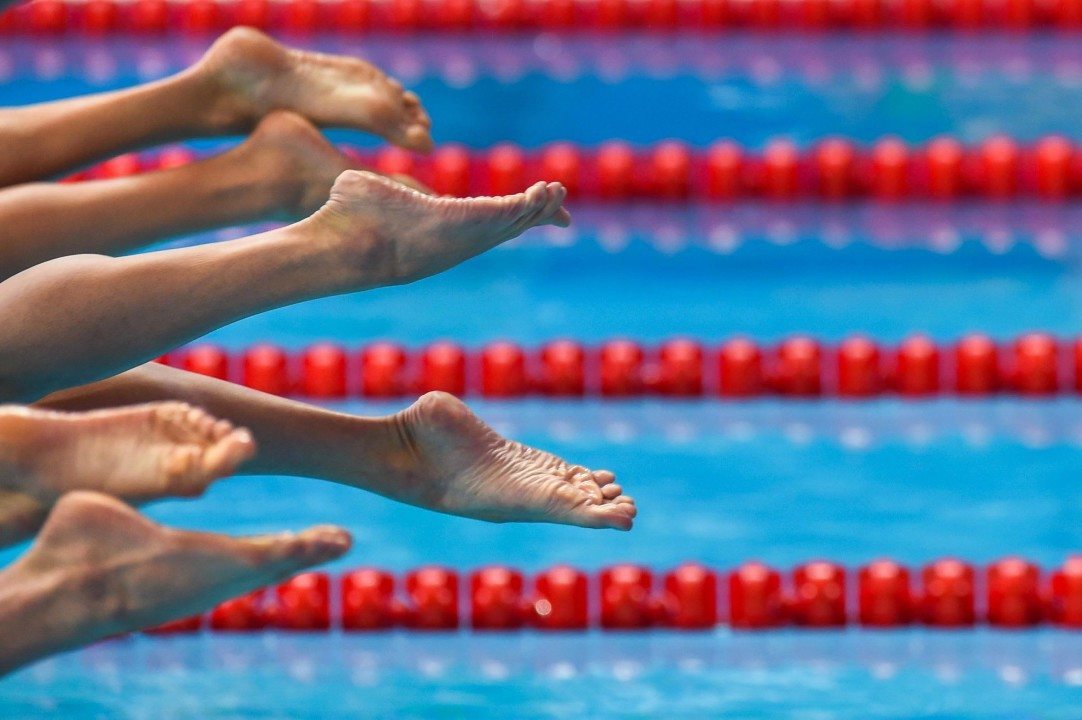Olivier Poirier-Leroy is a former national level swimmer based out of Victoria, BC. In feeding his passion for swimming, he has developed YourSwimBook, a powerful log book and goal setting guide made specifically for swimmers. Sign up for the YourSwimBook newsletter (free) and get weekly motivational tips by clicking here.
As swimmers we train hard all year for competition. But bridging the training and the meet is the mysterious, mystical thing known as the taper. It’s an opportunity for the body to recover from all of the hard work, to fine tune our swimming, and to ride an emotional roller coaster that bounces between complete and utter despair and feeling superhuman.
Here are 5 things to remember while going through your taper:
1. Remember that your body is in flux.
For some swimmers, there will be a variety of mysterious aches and pains that spring up during the taper. Some of them imagined, some real, but in the end, does it really matter which? Over the course of coming down in intensity and volume we become much more sensitive to what is happening with our body. We scrutinize and Google every little sting, ache or pain.
Things that would have gone otherwise neglected in the midst of hard training are thrown under a microscope and analyzed ad nauseam. Some soreness would be typical during regular training, but during a taper we expect our bodies to feel perfect all of the time.
SEE ALSO: The Swimming Taper: How to Be Ready to Swim Fast When It Matters Most
2. Avoid the desire to inject some last minute training.
The taper inflicts a little dose of reality on athletes – there is no more training ahead, no more opportunities to make last moment improvements. This can be a sobering realization for some athletes, who begin to fret that they haven’t done enough, and thus the urge to go throw down some more mileage hits them hard.
It’s natural to fear cutting back on the workload in the pool, but at this point it’s about recovery and rehearsal for the big meet. If you’re finding that the call back to hard training is becoming excruciatingly difficult to ignore, go to your log book and tally up all of the metres/yards that you have done over the past couple months. Seeing how much work you have put in will reassure that you’ve done the hard work.
3. Your confidence will yo-yo.
When the work cycle is done, and all that remains is tapering, we suddenly begin to doubt that we worked hard enough, that we invested enough effort into swimming to our expectations, and even that our competition goals were way too ambitious.
One day we second-doubt the way we feel in the water, our preparation outside of the pool, and wonder why we aren’t swimming like a boss yet. The next, our stroke feels glorious, our swimming is effortless, and our confidence explodes through the roof.
For many swimmers the battle isn’t so much within the pool, but keeping their head on straight long enough to get through the icky days where their self-confidence plummets to get to the effortless moments in the days and hours before the meet begins.
4. Stick to the plan.
Trust the hard work you have put in, and trust the path that has been laid out for you. If you are having second doubts about the taper, sit down with your coach and go over the plan so that you can remember that there is a very specific purpose to what you are doing.
When you’re feeling excessively grumpy and frustrated, or you are tired and sore and cannot figure out why, the first instinct is to look for a different path. We look elsewhere for solutions, doubt the process, and begin to wonder why our body isn’t reacting the way we’d like.
This situation tends to get exacerbated when swimmers in the next lane are boasting about how fantastic they feel in the water, and you are swimming through quicksand. Remember that tapering is an individual process; what works well for others won’t necessarily work for others.
You’ve been down this road before. Trust the process.
5. Keep a taper diary.
Writing down your moods, how you’re feeling, the doubts and anxieties you are feeling as you go up and down the taper roller coaster gives you the blueprint you need to muffle those anxieties.
Seeing your thoughts down in your workout log will remove some of the legitimacy and stickiness from some of the more ridiculous things you are telling yourself.
Knowing precisely how you are going to feel, and at which point in the taper you begin to pivot out of the sluggishness, is a simple and powerful way to remind yourself that the way you are feeling is part of the process.
About YourSwimBook
 YourSwimBook is a log book and goal setting guide designed specifically for competitive swimmers. It includes a ten month log book, comprehensive goal setting section, monthly evaluations to be filled out with your coach, and more.
YourSwimBook is a log book and goal setting guide designed specifically for competitive swimmers. It includes a ten month log book, comprehensive goal setting section, monthly evaluations to be filled out with your coach, and more.
Learn 8 more reasons why this tool kicks butt.
Join the YourSwimBook weekly newsletter group and get motivational tips and more straight to your inbox. Sign up for free here.

Looking forward my weekly updates..